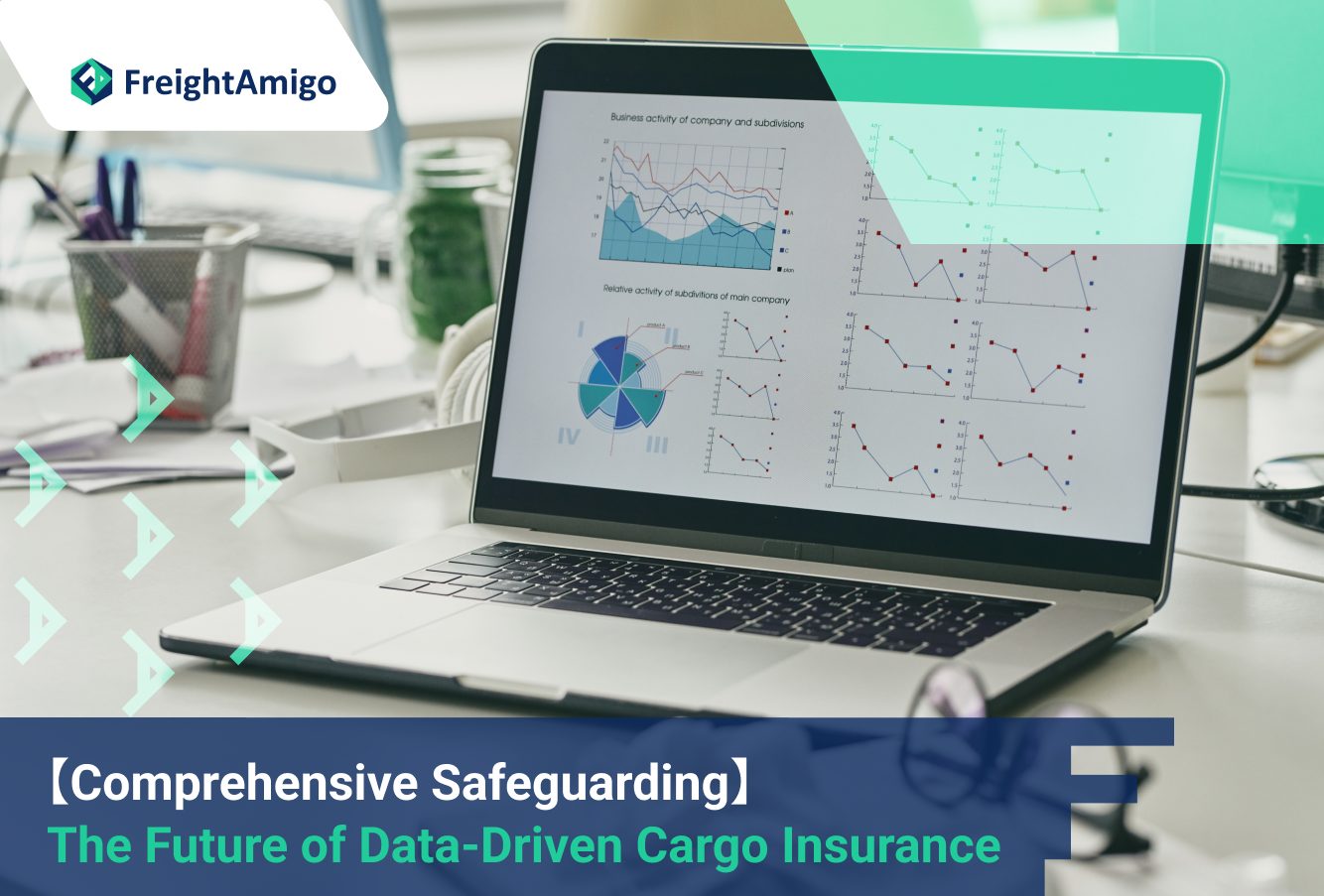The trucking industry is constantly evolving, and with it, the world of cargo insurance. As technology continues to advance, data-driven cargo insurance is emerging as a key trend that is reshaping the future of the industry. In this article, we will explore the latest developments in data-driven cargo insurance and how they are revolutionizing risk assessment, claims management, and underwriting decisions. We will also delve into the potential impact of emerging technologies, such as blockchain and predictive analytics, on the future of cargo insurance. Join us as we chart the course for the future of data-driven cargo insurance.
Latest update on 7 February, 2024 by Aiden Ng– Marketing Analyst at FreightAmigo
Want to compare the best Express, Air Freight, Sea Freight, Rail Freight & Trucking rates so as to have better control on cost?
Data-Driven Dynamics: Revolutionizing Risk Assessment
Data is the lifeblood of data-driven cargo insurance. Real-time data analysis and tracking have become essential tools in evaluating and controlling the risks involved in shipping goods. By leveraging advanced technologies and analytics, insurance providers can gain valuable insights into the industry and proactively reduce risks. These insights enable more precise underwriting and personalized coverage alternatives. With data-driven risk assessment, insurance companies can accurately predict the likelihood of accidents, damage to cargo, or other maritime incidents. This proactive approach ensures that the industry can adapt and respond to emerging risks.
Non-Physical Coverage: Expanding the Definition of Cargo
Cargo insurance traditionally focused on the tangible goods being transported. However, the definition of cargo is expanding to include intangible assets. Insurance providers are now offering comprehensive coverage for non-physical risks, such as data, intellectual property, and brand reputation. Acknowledging and safeguarding these broader interests of businesses is crucial in today’s digital age. By offering non-physical coverage, insurance companies provide a holistic approach to protecting businesses, ensuring that they are covered against both physical and non-physical risks.
Technology-Enabled Loss Prevention: Enhancing Risk Mitigation
Technology plays a pivotal role in the future of cargo insurance, particularly in loss prevention. The integration of IoT devices, GPS tracking, and sensors allows for real-time monitoring, contributing to the prevention of incidents like theft, damage, or spoilage. By leveraging these technologies, insurance providers can proactively mitigate risks and prevent potential losses. Real-time data analysis enables early detection of issues, allowing for immediate action to be taken. This technology-enabled loss prevention aligns with the industry’s commitment to enhancing overall risk management.
Sustainability Coverage: Protecting the Environment
In today’s world, sustainability is a vital component of all industries, including cargo insurance. Insurance policies of the future will include environmental risk coverage, ensuring that companies are safeguarded in the event of spills, mishaps, or other events that have an impact on the environment. This commitment to sustainability aligns with the industry’s dedication to eco-friendly procedures. By offering sustainability coverage, insurance providers can support businesses in their efforts to minimize their environmental footprint and contribute to a greener future.
Flexible and Customized Policies: Adapting to Green Practices
As the importance of sustainability grows, truckers are under more pressure to adopt green practices. This shift towards more sustainable practices has led to changes in liability insurance. Insurance providers are now considering potential environmental impact liabilities from accidents involving unsafe goods. The future of cargo insurance lies in flexible and customized policies that factor in the environmental practices of businesses. By offering tailored coverage options, insurance providers can help businesses navigate the changing landscape and ensure they are adequately protected.
Collaborative Partnerships for Risk Mitigation: Working Together for a Safer Future
The future of cargo insurance involves collaborative partnerships between insurers, trucking companies, and other stakeholders. Moving beyond transactional relationships, these partnerships foster a culture of shared responsibility and risk mitigation. By working together, insurers and trucking businesses can proactively address challenges and enhance overall risk management. Collaborative partnerships enable the industry to stay ahead of emerging risks, identify industry-wide trends, and develop innovative solutions that benefit all stakeholders.
Cybersecurity Integration: Protecting Drivers and the General Public
In an increasingly digital world, cybersecurity is of paramount importance. One active way to minimize risks and enhance road safety is to invest in thorough driver training programs. Insurance providers are collaborating with industry leaders to create policies that incentivize companies to implement comprehensive training initiatives. These policies promote safer conditions for drivers and the general public. By integrating cybersecurity measures into insurance policies, companies can protect against cyber threats and ensure the safety of all stakeholders.
Regulatory Compliance and Legal Safeguards: Navigating a Complex Landscape
The trucking industry operates within a highly regulated environment, making compliance essential. Future trends in cargo insurance involve policies that cover physical and non-physical risks and provide robust legal protection. Navigating regulatory challenges and potential legal disputes will be integral components of comprehensive coverage. Insurance providers are working closely with industry experts to develop policies that address the complex legal landscape and guide businesses towards compliance.
Dynamic Pricing Models: Enhancing Efficiency and Fairness
Technological advancements have opened the door to dynamic pricing models in the insurance industry. Real-time evaluations of risk indicators enable insurance firms to adopt pricing structures that are more precise and adaptable. This promotes efficiency and fairness by ensuring that companies pay premiums according to their unique risk characteristics and the state of the industry. Dynamic pricing models empower businesses to make informed decisions and optimize their insurance coverage based on real-time data.
Conclusion: Shaping the Future of Data-Driven Cargo Insurance
As we explore the future of cargo insurance, it is evident that data-driven approaches are reshaping the industry. By leveraging advanced technologies, insurance providers are revolutionizing risk assessment, claims management, and underwriting decisions. The integration of real-time data analysis, IoT devices, and predictive analytics enables proactive risk reduction and personalized coverage options. Collaborative partnerships and cybersecurity integration further enhance risk mitigation efforts. With tailored policies, comprehensive coverage, and dynamic pricing models, the future of data-driven cargo insurance is focused on customer-centricity and sustainability. Embracing these trends will ensure that businesses can navigate the evolving landscape with confidence and thrive in an ever-changing marketplace.
There are different options for cargo transportation. If you want to choose the most convenient and suitable solution, it is best to have the full support of logistics experts! If you are planning to ship goods overseas, please go to the FreightAmigo page for inquiries.
If you have any inquiries on logistics/supply chain, feel free to contact FreightAmigo now:
Chat with us online | Hotline: +852 28121686 | WhatsApp: +852 27467829









































